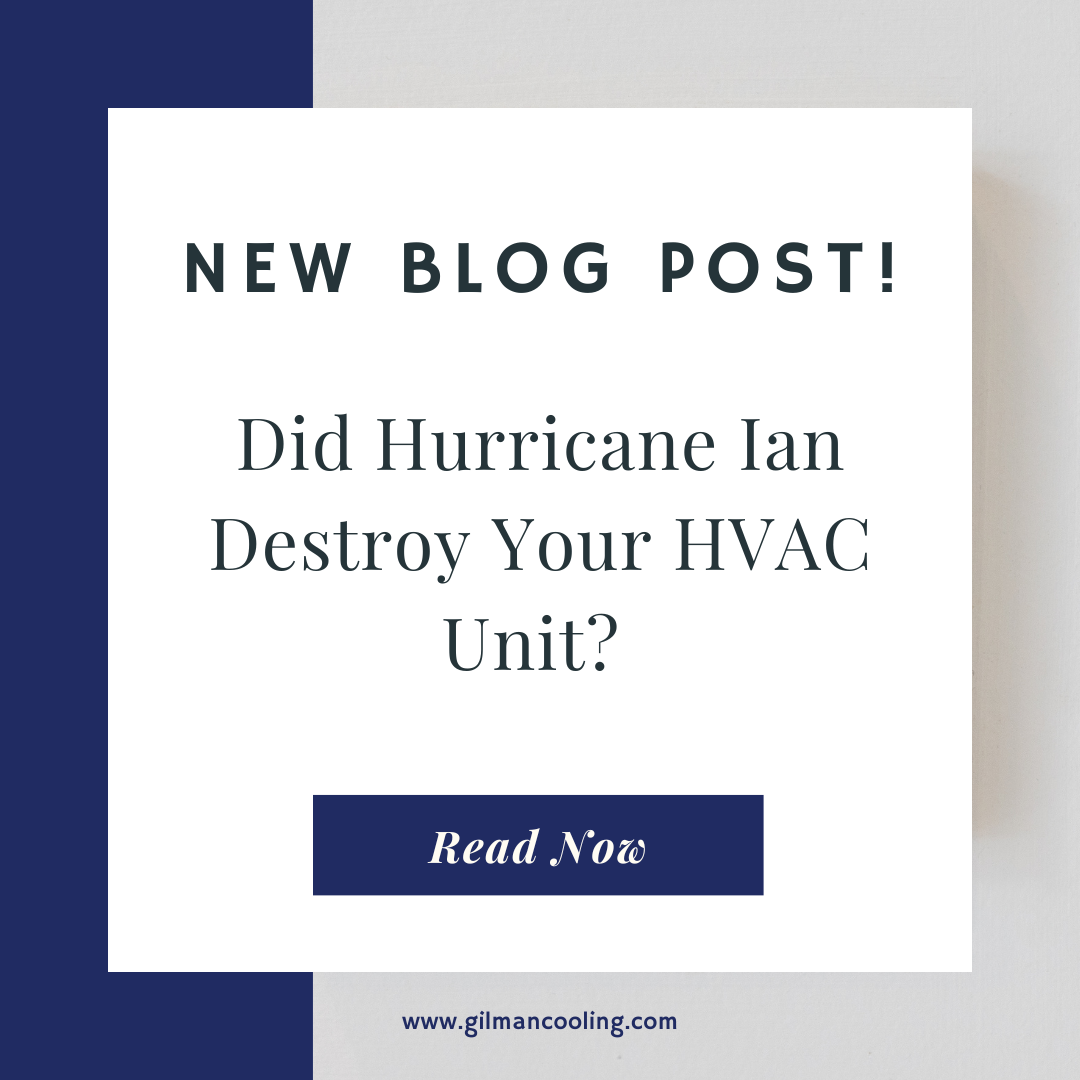If your HVAC unit doesn’t seem to be working as well (or at all) after Hurricane Ian, these steps can help you identify the issue at hand and get you back up and running as quickly as possible:
- Checking for Outdoor Damage
The most exposed part of your HVAC unit during Hurricane Ian was the outdoor unit, making it a good spot to start when you are checking for damage. Check for standing water, and if your unit turns on, listen for strange noises. If you notice standing water, don’t turn your unit back on. There may be electrical damage. However, if your unit is on and starts making noises, that could be a sign that parts have come loose or debris has made its way into your unit.
- Identifying Indoor Issues
A few signs of damage to your HVAC unit you might notice inside your home include funny smells or lack of cooling. A burning smell signals an electrical issue and you should turn your unit off immediately. If your HVAC unit doesn’t seem to be working its best and your house isn’t cooling effectively, this could signal a damaged motor, a leak in a refrigerant line, or clogged condenser coils. While you might think this is an issue you can live with, you’ll likely notice your power bill skyrocket if your unit isn’t working effectively.
- Getting Back Up and Running
Trying to fix your HVAC unit on your own can spell disaster. Not only could you potentially make the problem worse but you could also seriously hurt yourself. Gilman Cooling and Heating is a family owned and operated Southwest Florida business that has been providing comprehensive HVAC services in Southwest Florida for over 30 years. Our technicians can provide you with long term solutions to hurricane damage and get your home’s HVAC working in no time. To request a free estimate, call Gilman Cooling at Heating at 239-574-7780 or contact us online.








